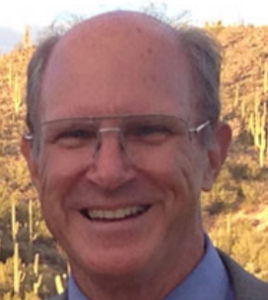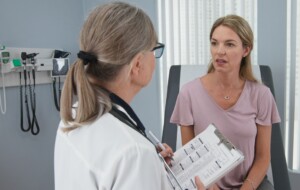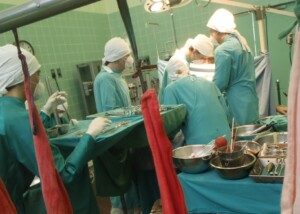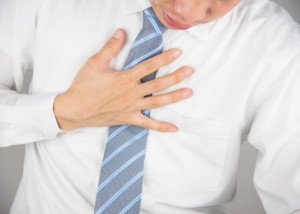People under 50, even 40, DO get esophageal cancer, including women.
Are there any commonalities among younger adults who develop esophageal cancer?
Esophageal cancer is usually diagnosed when it’s in a late stage – spread outside of the esophagus or “food pipe.”
This means a very bleak five-year survival rate. Nevertheless, only 2.2% of the diagnoses occur in people between 20 and 44.
Do these younger patients with esophageal cancer have something in common?
“It was and is unusual for patients with EC to be under the age of 50 years,” says Alex Little, MD, a thoracic surgeon with a special interest in esophageal and lung cancer.
“This represents less than five percent of patients, so there are no large studies from which to draw conclusions.
“I’m not aware of any deviation in this group from the typical constellations of risk factors in all patients.
“One can speculate that for this group, genetic predisposition plays an important role.”
Thus, nobody at this point knows, for instance, if heavy drinking or smoking are disproportionately represented in younger patients with EC.
It is not known if, for example, obesity or severe chronic acid reflux is over-represented in the younger group.
Risk factors for esophageal cancer include drinking, smoking, obesity and GERD (reflux disease).
 Alex Little, MD, trained in general and thoracic surgery at the Johns Hopkins University School of Medicine; has been active in national thoracic surgical societies as a speaker and participant, and served as president of the American College of Chest Physicians. He’s the author of “Cracking Chests: How Thoracic Surgery Got from Rocks to Sticks,” available on Amazon.
Alex Little, MD, trained in general and thoracic surgery at the Johns Hopkins University School of Medicine; has been active in national thoracic surgical societies as a speaker and participant, and served as president of the American College of Chest Physicians. He’s the author of “Cracking Chests: How Thoracic Surgery Got from Rocks to Sticks,” available on Amazon.
 Lorra Garrick has been covering medical, fitness and cybersecurity topics for many years, having written thousands of articles for print magazines and websites, including as a ghostwriter. She’s also a former ACE-certified personal trainer.
Lorra Garrick has been covering medical, fitness and cybersecurity topics for many years, having written thousands of articles for print magazines and websites, including as a ghostwriter. She’s also a former ACE-certified personal trainer.
.










































